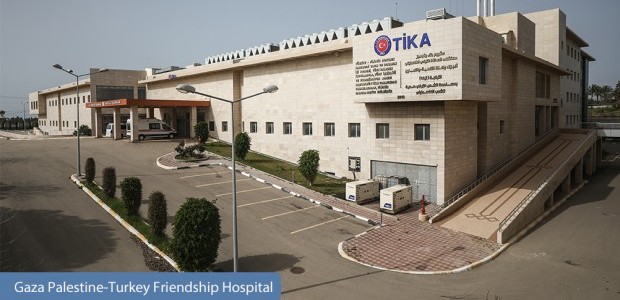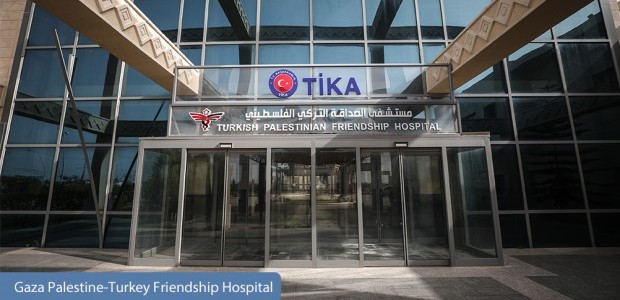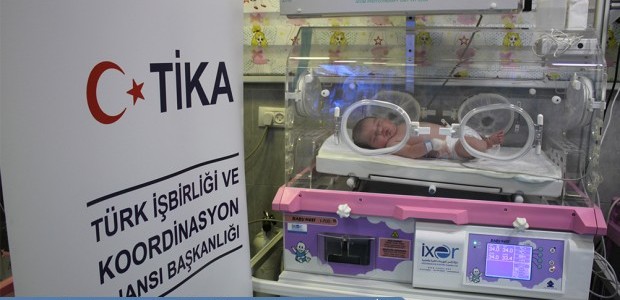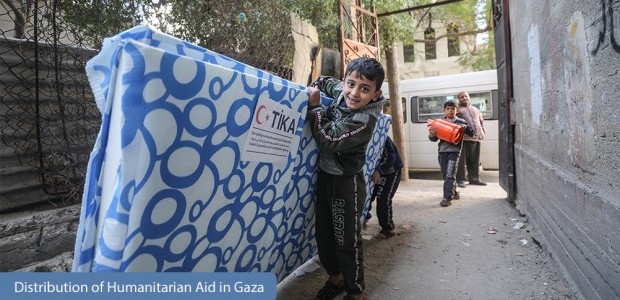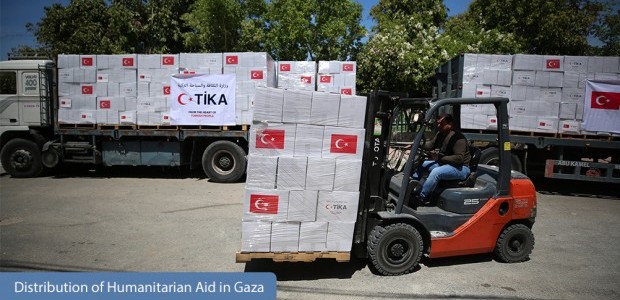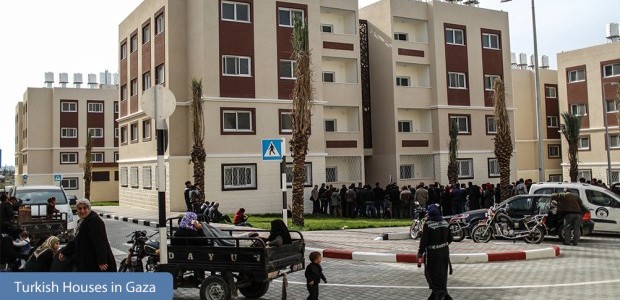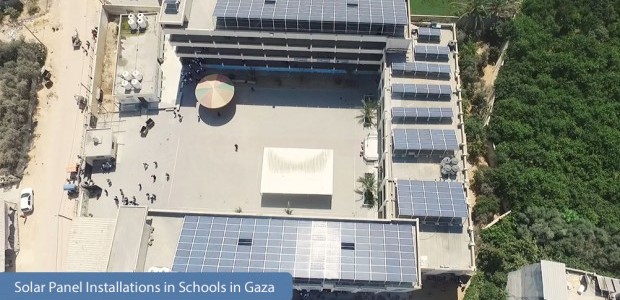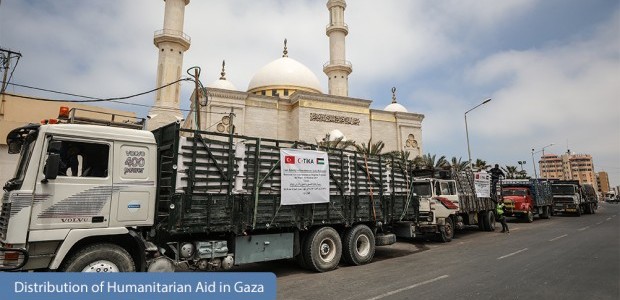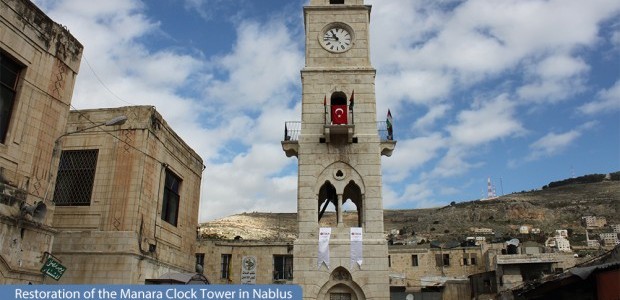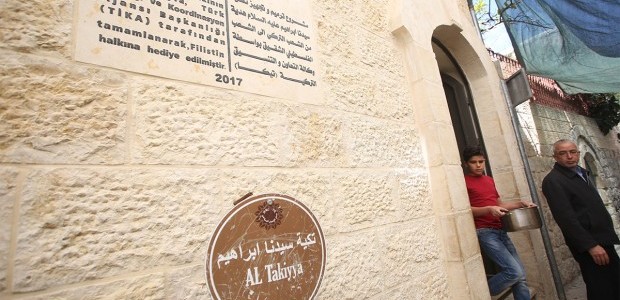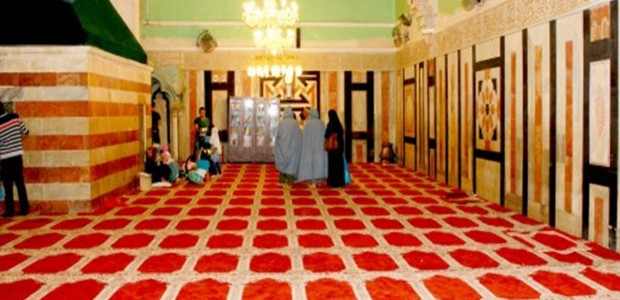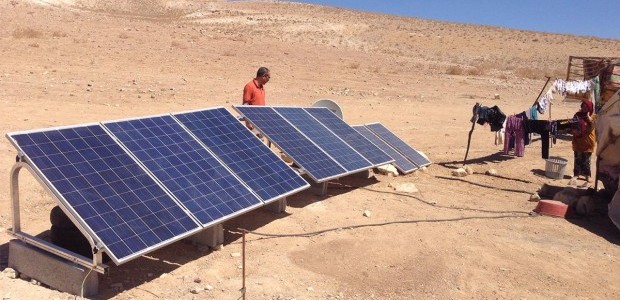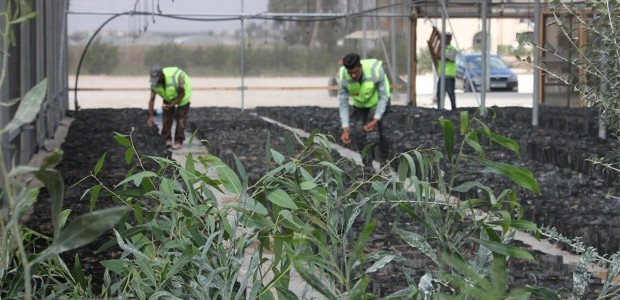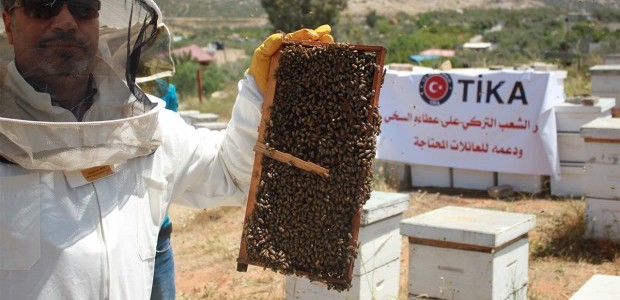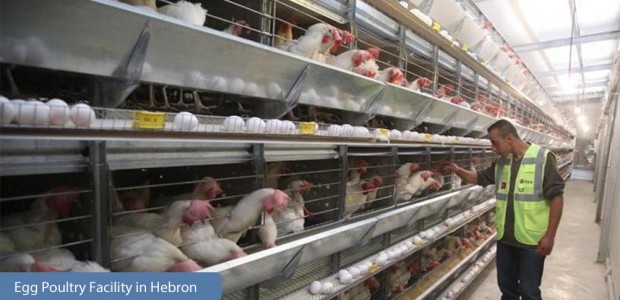FROM PERSONAL INTEREST TO INSTITUTIONAL INSIGHT: THE PALESTINIAN ISSUE 27.06.2020
What we need in an issue with Jerusalem at its center is not to give superficial and narrow groupist reflexes, but to develop a global climate of peace. First of all, we convey our condolences to all the martyrs who have given their lives to our blessed path and the servants of our world of spirituality, and we ask for mercy. Their way is our way, their troubles are our troubles. May our sentence be worthy of our ancestors and those who migrated before us to the afterlife.
What we need in an issue with Jerusalem at its center is not to give superficial and narrow groupist reflexes, but to develop a global climate of peace.
First of all, we convey our condolences to all the martyrs who have given their lives to our blessed path and the servants of our world of spirituality, and we ask for mercy. Their way is our way, their troubles are our troubles. May our sentence be worthy of our ancestors and those who migrated before us to the afterlife.
At the end of the persistent suggestions of our friends, we began to compile the information and experiences we encountered in the field to classify them on a regional basis and to present them to the benefit of our young people. We have written this article in the form of an interview on the Palestinian/Israeli issue.
Being Parts of Fragmentation
Since the beginning of the 19th century, all Muslim lands have been subjected to imperialistic occupations directly or indirectly. These occupations were generally carried out through long-term direct military intervention or governments which were weak in willpower. On the other hand, it such “occupations” nowadays continue in a strange and distressing process involving ISIS/Taliban violence at one end and treacherous operatives like FETO at the other end, via economic dependency, cultural erosion, political/social sieges and many more post-modern pressures and methods of intimidation. Although post-war political order based on NATO/West and Warsaw Pact/Soviet Union opposition collapsed in 1990, the balance mechanisms of the multi-actor world system have not been established yet. New religious, social, and political movements emerged in the power vacuum caused by structures which lost their qualities of statehood, and due to political instabilities in the vast Islamic geography spanning from Morocco to Indonesia. Although the names of some movements which emerged in the name of Islam are the same as in the past, they have been taken out of context and almost transformed into “genetically modified organisms”. After the September 11 attacks, in the period that started with the occupation of Afghanistan and continued with the second invasion of Iraq in 2003, Muslims began to be cornered in every respect It is now a period when people are stigmatized and labeled as “terror supporter/terrorist” and subjected to heinous assaults on social media in addition to attacks by the conventional media.
Take on the Middle East Crisis Based on My Personal Experience
I still do feel the deep excitement of that glorious rally and show of strength in Konya in 1980, which challenged the world over Jerusalem, when I was a middle school student in Cyprus. Again during those years, I kept track of the Sabra and Shatilla massacres in Lebanon down to every single detail. I had met the young people from different parts of the Islamic geography and felt the meaning of being "Ummah" in the "Cyprus Islamic Youth Camp” hosted by the late President Rauf Denktas. The camp was organized for the first time in 1978, calling for the recognition of the newly established Turkish Federated State of Cyprus. After starting elementary school in Tripoli and finishing high school in Nicosia in the east of the Mediterranean, I almost became a part of the sea. In fact, for me, the Mediterranean is a basin where my mission and my cause developed. My university life, which started in October 1983 at the Middle East Technical University (METU) coincided with the years’ storms broke in my feelings and my sadness deepened when I compared Turkey with the well-developed countries. It was our challenging but exciting early life stage that we spent questioning the system and like our peers back then. While I was working as Deputy Secretary-General of Independent Industrialists and Businessmen's Association (MUSIAD), we first had the opportunity to visit Jerusalem, the al-Aqsa Mosque, and many parts of Palestine in 1997. Our visiting group consisted of businessmen who were trying to contribute to the revitalization of the Palestinian economy. This visit, which we paid upon the invitation of Yasser Arafat, the leader of the Palestinian Liberation Organization (PLO), was our first direct contact with the region. Then, we had the opportunity to get to know and understand Palestine through our visits to the private sector. During our Presidency of the Turkish Cooperation and Coordination Agency (TIKA) between the years of 2011-2019, visits we paid to Palestine and Israel also allowed us to better understand the region. Numerous bilateral - multilateral humanitarian and development aid projects were launched in Palestine during this period with the amenities provided by our state and the guidance of our honorable president. Despite all the time that passed by, the pain in the Muslim lands never ceased to exist, the sufferings continued and the fire of the Middle East was never extinguished.
Turkey with its NGO’s stands with Palestine [The President's efforts to integrate our local associations, foundations and private sector organizations with the world and to make them active in the international arena are well known to everyone, as he has spent his life as the voice of the victims and the oppressed in the service of the nation and the state.] Regarding the Palestinian cause, which is one of the lifebloods of the Turko-Islamic? World, our esteemed president, personally became the executive power of determination and to mobilize all public institutions and organizations in his governments. He pursued almost every project that was actualized abroad and found result-oriented solutions.

One of the first chaos by the search for a new order in international relations in the 90s broke out in Yugoslavia. With the dissolution of Yugoslavia, we were shaken by the massacres that led to genocide in our Bosnia and Herzegovina, the apple of our eyes. We witnessed the fact that our non-governmental organizations in Bosnia and Herzegovina were organized in the field before many states, and all these humanitarian aid and solidarity efforts honored our nation. In the following period, our non-governmental organizations showed their presence in geographies such as Moro, Chechnya, Kashmir, Palestine, Arakan, Kirkuk, Somalia. Also, our nation and state supported the will of our civil society to bring mercy and goodness to the world's oppressed.
While the problems of Gazan Muslims increased day by day as a result of a geographical and political split between Gaza and West Bank, Gazan people sighed of relief to some extent with our humanitarian organization taking the initiative. When Israel's oppressive and painful blockades and embargoes in Gaza became unbearable for the people of the region, our nation appreciated the devoted activities that Turkish NGOs carried out in the region.
Turkey looks for solutions to crises with proactive diplomacy
Turkey's active role in the Middle East has started weakening especially as of 2008 after the Israeli attacks on Gaza. These attacks have further escalated the tension in the relations as they were carried out at a time when Turkey was mediating peace talks between Syria and Israel.
On the panel of the World Economic Forum held in Davos on January 29, 2009, the President made his historical debut in the world political literature as “one minute” for the president of Israel and the moderator of the panel after the Israeli President Shimon Peres made unjust and unlawful statements against the Palestinians. This revulsion at the Davos summit took place at a time when the world was experiencing the effects of the economic crisis and every international actor, especially the developing countries, was seeking “good relations” with the developed countries of financial capitalism to fund their country. With the revulsion of ”one minute“, no position was taken limited to targeting Israel and its Gaza massacres, and with the firm stance of ”I will not come to Davos again", the courage and determination of Turkey to confront the capitalist exploitation system alone when necessary were observed. This attitude should be seen as the courage not to succumb to the political threats and attacks of financial centers, even at a time of global economic crisis.

The “one-minute” revulsion at the Davos summit is not just an event to be engraved in the history of 50 years of Davos meetings, it is a universal conscientious position to register in the world political history. Taken together with the message ”the world is greater than 5", it is a direct criticism of the United Nations (UN) system that global molestation built after World War II. This position should be seen as the multi-layered global expansion of Gamal Abdul Nasir's search for alternative policies in Egypt and the Arab world and Mohammad Mosaddeq's, particularly in Iran. This political position based on cooperation with the world is still not sufficiently understood by some circles in our country. This attitude, which is open to cooperation with the world but also defends independence, is the re-embodiment of the Seljuq-Ottoman wisdom, that disregards real politics in the face of the violation of the basic human rights, in the modern international relations system of the Republican era. After Arafat drew global attention to the Palestinian cause, the first leader to carry out strong protest and action in the 2000s was the Prime Minister Recep Tayyip Erdogan. Every corner of the world, from Latin America to Europe, from its oppressor to its underdog, has been shrugged off by “one minute”, and a world population of 7 billion has focused on Palestine.
On 31 May, 2010, on the way to lift the embargo on Gaza, volunteers of different nationalities went out, 10 of our citizens who were on board with a low attack were killed and more than 50 Turkish citizens were wounded and became veterans. The ”Mavi Marmara" incident was very painful at a time when the Turkish Republic was questioning the international system of exploitation in the Middle East and seeking to establish peace. This effort to break the blockade imposed by the state of Israel on the Palestinian city of Gaza and intensify the sensitivity of the world public opinion to the region has turned into a political crisis between Turkey and Israel and has entered a period in which diplomatic relations between the two countries have been reduced to a minimum level. The cessation of diplomatic relations between Turkey and Israel has had significant consequences throughout the Middle East and in particular in Palestine. The biggest reflection is that the strong “one minute” wind-blown by Mr. Recep Tayyip Erdogan pushed the world agenda behind him, causing the need to focus on renovating and repairing the damage to the political/diplomatic relations damaged by the wounds inflicted by the massacre.
On the other hand, significant changes began to take place in the Middle East and North Africa after 2010. Syria and Yemen civil wars broke out, Egyptian President-elect Mohamed Morsi was removed from power by a military coup. Many states, especially Russia, the United States, and Iran, became involved in Middle East issues through the Syrian civil war. The political influence of Iran in Iraq, Syria, Yemen, and Lebanon began to grow, Israel's injustices and pressures on Jerusalem and the West Bank were exacerbated. With the temporary and artificial agenda alliances of Egypt, the United Arab Emirates, and the anti-Turkey blocs, the region has entered a period of increased unrealistic, short-term anti-Turkey and anti-Erdogan efforts. However, there are no issues that cannot be overcome with these countries, and many common interest balances can be established for the future.
During the period when our diplomatic relations with Israel continued more effectively, many official and civilian humanitarian organizations from Turkey and around the world were able to find opportunities to help the people of the region in Gaza. Problems with basic human needs such as food, cleaning and sheltering in Gaza Strip, with a population exceeding 2 million people, were increased much more during this period. Moreover, together with the weakening of the diplomatic relations (especially added to the tensions experienced after moving the U.S. Embassy to Jerusalem), the humanitarian aid activities organized by the international actors in Gaza, except the ones that were organized by Turkey, come to the forefront. Also, the preferences of some of the international organizations and political structures in the region were becoming more and more decisive. Even though our institutions of civil society were successfully executing their humanitarian activities in many of the oppressed regions, particularly Palestine, unfortunately, today, as a reflection of some political and diplomatic issues, we face certain obstacles in Palestine.
_.jpg)
Being in the field after the table: our concrete and continuing support for Palestine
As of July 2020, Israel is preparing for the annexation of the West Bank's settlers' territories and the Jordan Valley. All missteps taken in the logic of ”I did it, so it is proper“ will be passed on to the future generations as a legacy of ”crisis". With the new “Israeli/Gaza wars”, which is unsustainable, impossible to manage, impoverished threat to the peace where the security/safety viruses can nest, the world is moving rapidly towards a process in which the areas of “conflict” will grow even more in the name of so-called “peace”.
It is necessary to believe that if the oppressed become cruel, it should be believed that the divine destiny will come into play and they can be relegated to the underdog position again. As the first Muslim state to recognize Israel in 1949, it is a great historic loss to not appreciate the power and skill of the Ankara administration of Turkey and its leader, whose effectiveness in the region is based on strong foundations, and to not believe in their advice and fair approach.
With our charity institutions, TIKA, AFAD, Religious Affairs, Turkish Red Crescent, IHH, and many other benefactors, Turkey will continue to be on the side of the needy. Everyone has seen what these institutions have achieved in recent years. We have succeeded all these through the Turkish Cooperation and Coordination Agency (TIKA), which is under the Ministry of Culture and Tourism, and was under the Prime Ministry of the Republic of Turkey in the previous periods.

With the health investments to serve as the regional hospitals in the West Bank and Gaza, the Government of the Republic of Turkey aimed to provide the health facilities to the Palestinian people from a holistic perspective. The Tubas State Hospital, built by TIKA in the northern region of the West Bank, has been a major success, especially in maternal and child health, and has provided significant improvements in obstetrics services in the region. Thus, our Palestinian siblings were instrumental in both population stability and in raising healthy generations.
_.jpg)
On the other hand, the Palestine Turkey Friendship Hospital in Gaza, which began its construction in 2011, was directly affected by the 2014 war, in particular by tensions with Turkey in addition to the Israeli-Palestinian conflict and the division in Palestinian internal politics. It was only during the COVID-19 outbreak, which was declared a global epidemic, that it was able to enter into service in April 2020. I hope that today more than 2 million of our Palestinian siblings in Gaza will all be healed (Unfortunately, despite all the effort and expense, we, as Turkey, have had to live the bitter face of the division between them).
The project of landscaping and construction of the Ihata wall of Yusufiye Cemetery, which is located at the foot of the historic walls that were improved and strengthened during the reign of Suleiman the Magnificant, and is also one of the two cemeteries that house the graves of two companions (Ubade bin Sammit and Sheddad bin Evs, the first governor of Jerusalem, carries vital importance. The encircled cemetery borders could be turned into something else in the name of a change in plans by Israel. This project, which was started by TIKA, was expedited and completed despite all the difficulties that were later raised by Israeli institutions. It is a special occasion of gratitude and pride for our nation that one of the two historical tombs surrounding the city walls was protected after Suleiman the Magnificent, The last founder of the city walls.
When it is considered that part of the Me’menillah Cemetary, which encircles the historical city along its western walls, is being turned into a shopping center, the other part is a park in disrepair, and also recently it is being turned into a so-called “Museum of Tolerance (!)” by the Israeli authorities, the importance of the efforts of the Turkish side put forward at that time would be better understood.
After the 2008 Israeli offensive, the infrastructure of the Gaza Strip collapsed and economic and social life has been severely damaged by the embargo and blockade imposed over land, sea, and airspace since 2007. Access to clean water has been a major problem in the Gaza Strip, but both drinking water lines, wastewater transport, and treatment connections, and agricultural irrigation infrastructure have been destroyed. The lists of all goods allowed to enter Gaza could be continuously reduced and increased according to the course of relations between the Gaza Strip and Israel, and in this way, Gazans were kept under pressure, so to speak, a kind of carrot-and-stick policy. For the main source of livelihood, fishing distances were likewise arbitrarily changed within the limits of 3-6-9 miles, turning into a policy of taming Gazans. The situation became even more unbearable because the fuel tanks of the only existing power plant in the Gaza Strip, which also depended on electricity supply, were damaged in the attacks and forced to import fuel for electricity needs. With the special follow-up of the president himself, tankers and fuel supplies were made to the power station through the UN.
As can be easily seen in the current UN reports on Gaza, 95% of the water available in Gaza is not suitable for usage. If this situation is not improved, it is likely that the conditions, that would make life impossible in Gaza, would emerge shortly. The problems of access to clean water and discharge and reclamation of wastewater; the lack of existing water wells, sanitation facilities, wastewater treatment plants, and desalination plants; and the effects of the attacks became increasingly severe and unsustainable. About this problem, previously started activities such as drilling water wells, sanitation, and treatment facilities, and chlorine supply in Gaza have been increased and continued by the Republic of Turkey.
Although the economic life was directly affected by the embargo and blockade conditions, we were affected by the liveliness, hope, abundance, and diligence we saw in Gaza every time we visited. As if they have become the most patient and steadfast people on the Earth as a result of all these nuisances and calamities. For families that are engaged in agriculture, Turkey provided dozens of tractors and miscellaneous agricultural equipment supplies to bring the land not opened for agriculture into production. For the families that earn their living by husbandry, Turkey distributed thousands of sheep and cattle. Moreover, for the olive producers, Turkey supplied hundreds of harvesting equipment, and TIKA established an olive oil production facility. All the breakthroughs of Turkey in the region have come to life one by one, particularly the ones that are mentioned above. Our olive oil production facility, which can be operational in 6 months under normal conditions, was able to enter service in only 3 years due to the current embargo conditions. This state-of-the-art olive oil facility in Gaza, which is not for profit because it is a municipal enterprise, will enable small producers to overcome their difficulties in crop loss and quality and produces tens of thousands of tons of olive oil from tens of thousands of tons each year. This facility continues to contribute to the economy of Gaza and sells olive oil to the West Bank and Israel to the extent permitted by Israel.

The Vocational Training Center project, which is developed for our siblings who were forced to spend their lives with physical disabilities by the Gaza Wars, is also important. This project, which has received many international awards and supported by other donor organizations, still serves as the center of sustaining hope for Palestinians who have lost their sight and hearing and other body parts.

The 320-apartment Gaza-Turkish housing estate, consisting of 20 blocks built for Gaza widows and orphans who lost their homes in the 2014 war, has been home to the weakest sections of the society. Another of the activities that were organized during the war by our Religious Affairs Directorate and which made TIKA an instrument for the use of our people in Gaza is the provision of support for 4,000 young people from Gaza to establish their lives at least at a minimum level with the mass wedding ceremony. The Israeli authorities, who considered the inhabitants of Gaza to be potential “terrorists”, rather than thanking us for establishing the social life balance in those days, instead turned to black propaganda on social media (Turkey/TIKA supported the terrorists of Gaza), which would not be worthy of any state seriousness. All these projects and the similar ones aimed at protecting hope as a means for the youth of Gaza to establish a home have contributed indirectly to the establishment of a lasting peace environment in the region.
All of the material and moral support our government provides is for Palestine to gain its unity, integrity, and the position it deserves as a sovereign state. In all our visits, we have never gone away from a point of view that aims to increase hope and establish a peaceful environment. We felt the love of Nuri Pakdil brother, who had never lost consciousness of Jerusalem and instilled in us, for Jerusalem when we accompanied him during his visit to the land of Jerusalem, Palestine for the first time in his life. The excitement he experienced while sharing his emotional joy in the Masjid al-Aqsa complex in a phone call with our president is still deep in our hearts. During the opening program of Nablus Girls' School, which is one of the educational projects that includes the goal of opening a school every year, the cry of “Jerusalem is the mother” will ring in the ears of all of us with the joy of announcing the name of our school as Nuri Pakdil Girls' School.
To summarize
Today, as a requirement of the efforts of our state, which is based on the regional peace within a fragmented Middle East geography, we strive to be on the side of all our Palestinian sisters and brothers. We are trying to mobilize the possibilities of our state for the unity and integrity of Palestine. In our meetings with the parties on every occasion, we advocate permanent peace in the region, criticize confrontational and aggressive initiatives and emphasize that peace is needed not only by Palestine but also by the entire region. We say that the difficulty of our activities does not benefit anyone and that we provide significant added value to the economy of the region through our development assistance. Lasting peace can only occur with a just and equal approach, without excluding any of the sides. Otherwise, we cannot save ourselves from facing with the hurtful picture and devastating consequences of the initiatives, which set aside historical facts, international law and basic texts that have emerged as a result of the world’s institutional accumulation to date, under the name of the one-sided crafted so-called “Peace Plan of the Century”.
What we need, in an issue with Jerusalem at its center, is not to give superficial and narrow group-wise reflexes, but to develop a global climate of peace. The integration point of the Turkish state's quest to establish a just and egalitarian order stretching from Sarajevo to Kirkuk with 2 billion Muslims is to defend the sensitivity of Jerusalem.
The bitter events of the last century have helped us all to mature, gain experience, and look at matters more wisely. This time, on the other hand, the lying and immoral scheme of social media may be a barrier to reaching the truth. We must not allow the dark circles that have learned our emotions, our sensibilities, to turn our superiority into weakness. Every clean stream that the dark hands enter is polluted, and then it spreads to streams, and those streams infect other rivers and seas. It is important for us to understand and learn the visible and invisible parts of each issue and to make multifaceted collaborations for it. There is no problem that a just, moral and sincere stance on which mutual interests are established cannot solve.
If our problem is to lead the spread of “peace” and “salutation” on earth, “Our Purpose is One, Our Goal is One, Our Ideal is One, Our Cause is One.”
[Dr. Serdar Cam is the Deputy Minister of Culture and Tourism]
https://www.aa.com.tr/en/analysis/opinion-from-personal-interest-to-institutional-insight-the-palestinian-issue/1889966
